Raccoons are a pain to have around the house or your property. Although they do look cute, raccoons are a nuisance creator. They are ideal to watch from afar but can wreak havoc on your property if you set them loose.
From destroying your garden to digging through your trash and making a mess, raccoons can do much damage beyond your comprehension. Some of them even transmit diseases, which can have severe complications if not handled wisely.
This article will provide you with all the tips and tricks for quickly removing raccoons from your house.
Table of Contents
What are the Signs of a Raccoon Infestation?
Following are some signs that you should pay close attention to.
1. Signs of raccoons feeding
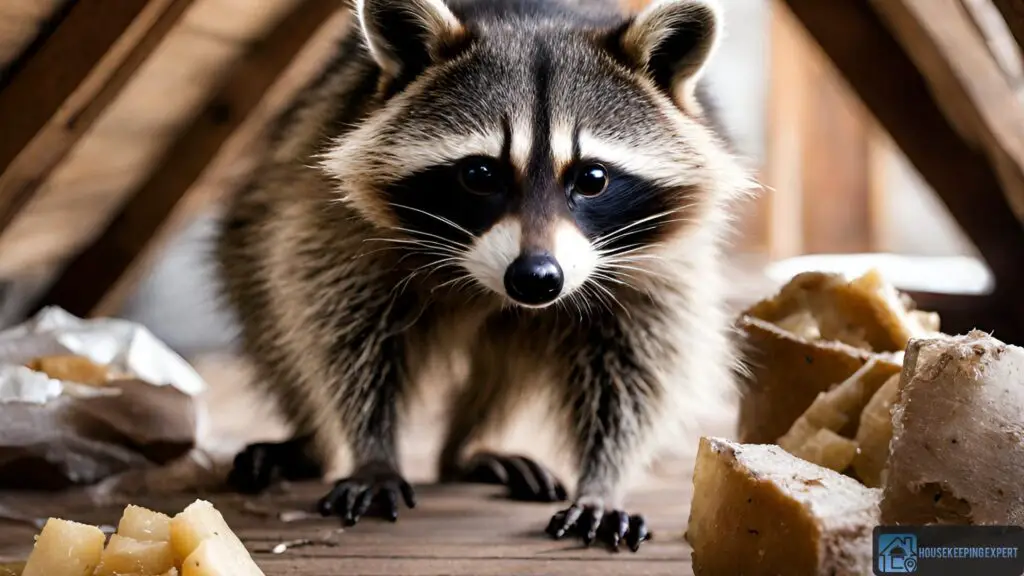
Raccoons are ravenous eaters, meaning they will leave a trail behind them once they are done with their food scavenging around the house. You can find the trash upturned or food bits scattered around haphazardly.
2. Tracks of raccoons
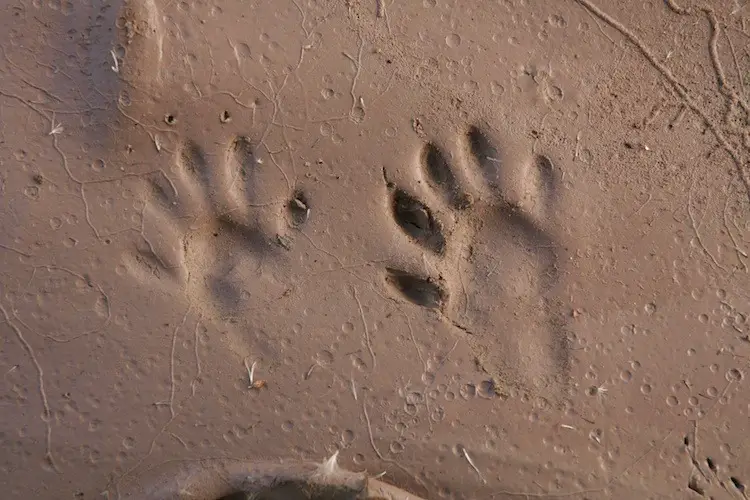
If you have a muddy trail around your yard, you should be able to track the raccoons by their flat foot impressions on the ground. One of the telltale signs is the kind of movement. Instead of simple and straight movement, you will find that the raccoons move in a zig-zag pattern.
Their heels are also slightly longer and broader, which is another distinguishing sign to look out for when tracking their movement.
3. Raccoon droppings
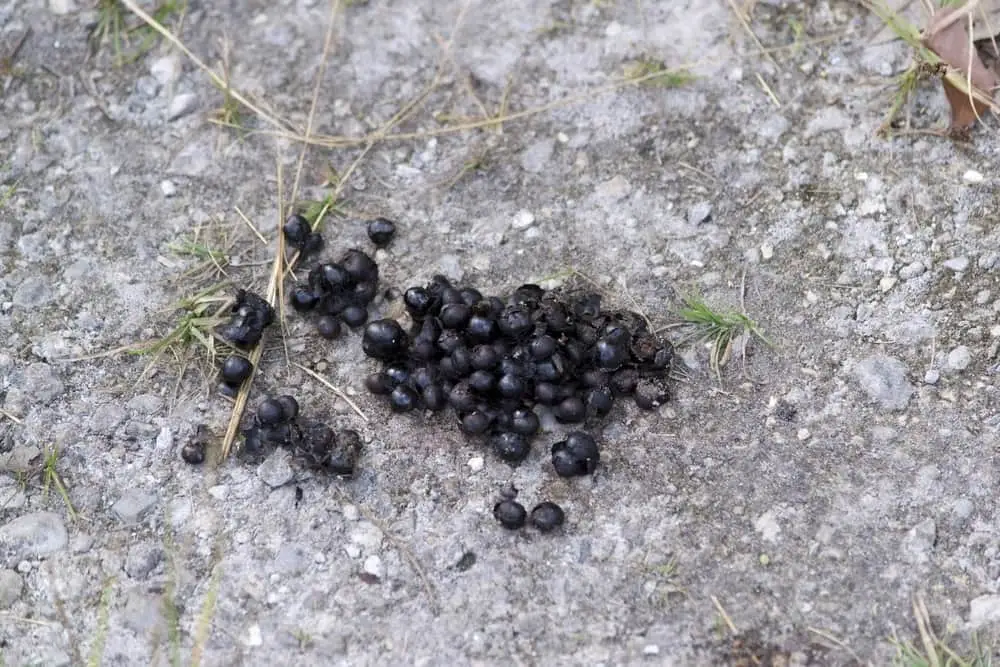
Besides leaving their food trails, raccoons also leave their droppings here and there around the property. The droppings are generally cylindrical shaped with rounded or broken ends.
Also, they have a darker color, which typically varies based on the diet.
4. Strange sounds
Raccoons make a mix of whistling, mewling, and growling noises when they are infesting a property. So, if you start hearing these unique noises out of nowhere, you know where they are coming from.
Ways to Get Rid of Raccoons Humanely
Once you have confirmed that you are dealing with a raccoon infestation around your home, the next step is to implement some practical tips to eliminate them. A few tricks work, and we have compiled them all into one list here.
1. Using one-way doors
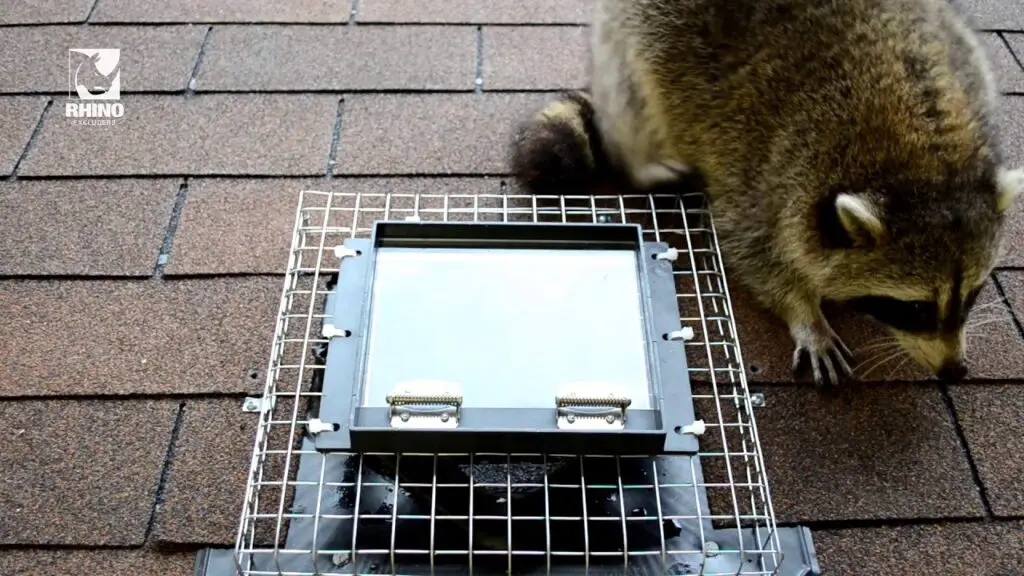
Not many people realize this, but raccoons often find their way into people’s attics and spend much time living there. If you have a few there, the best way to eliminate them from the house is by using a one-way door.
These are best left to the professionals to build and sort. Once the raccoons leave the attic through that door, they can’t make their way back in. In the long run, this should keep the raccoons out of the attic for good.
2. Use light and sound
The easiest trick to eliminate them from the property is to make them feel unwelcome. In most cases, raccoons are infiltrating your home in search of food, safety, and a warm place to nest.
Hence, the easiest way to eliminate them and get rid of them is by making the place inhabitable. Using bright lights or loud sounds makes the raccoon uncomfortable in the area, forcing them to move out of the property for good.
3. Eliminate food sources
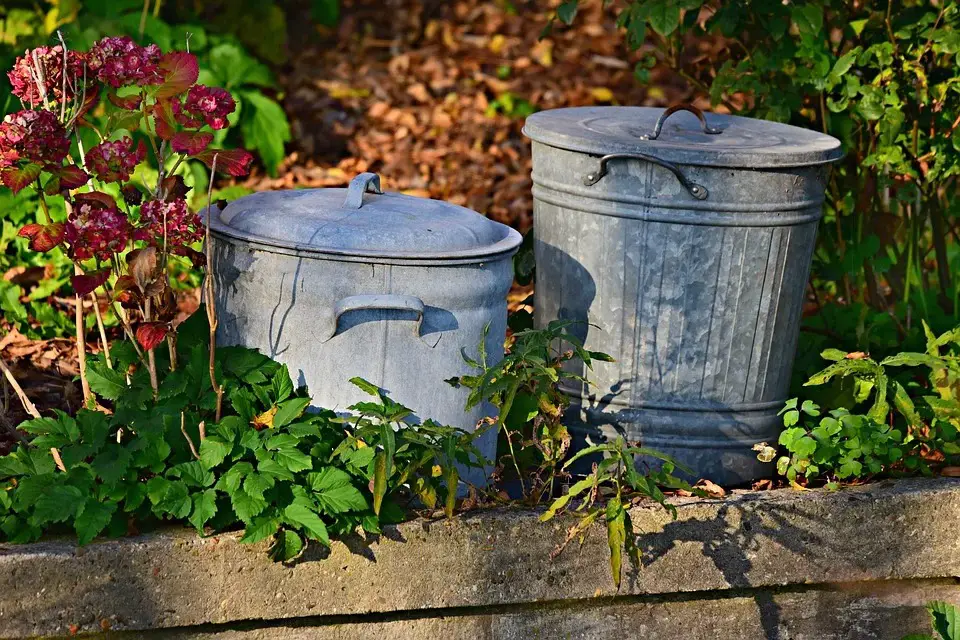
Raccoons aren’t picky eaters, meaning they will pretty much salvage any food they come across.
This includes open trash cans, fruit trees, bird feeders, etc. Any food source needs to be removed from the property so you don’t provide any food source for the raccoons to feed on.
4. Motion-activated sprinklers

At the beginning of the article, we discussed how raccoons are generally quite intelligent creatures. However, if you want to reduce their infestation in your home, the easiest fix would be to scare them away.
Motion-activated deterrents are your safest bet. What you can do is install motion-activated sprinklers all around the yard. So, when they detect some motion, they will shower the raccoon with water, thereby scaring them out of the property.
5. Seal the holes
If you have holes or openings that allow raccoons to enter your home, you must fix them immediately. Raccoons have a strong sense of smell, so if they smell food around your home, they will likely look for holes and openings to gain entry inside the house.
You don’t want that to happen. Once the raccoons gain entry into the house, it will be much easier for them to infiltrate and create chaos. So, your work is to implement preventative measures from the beginning.
6. Trapping
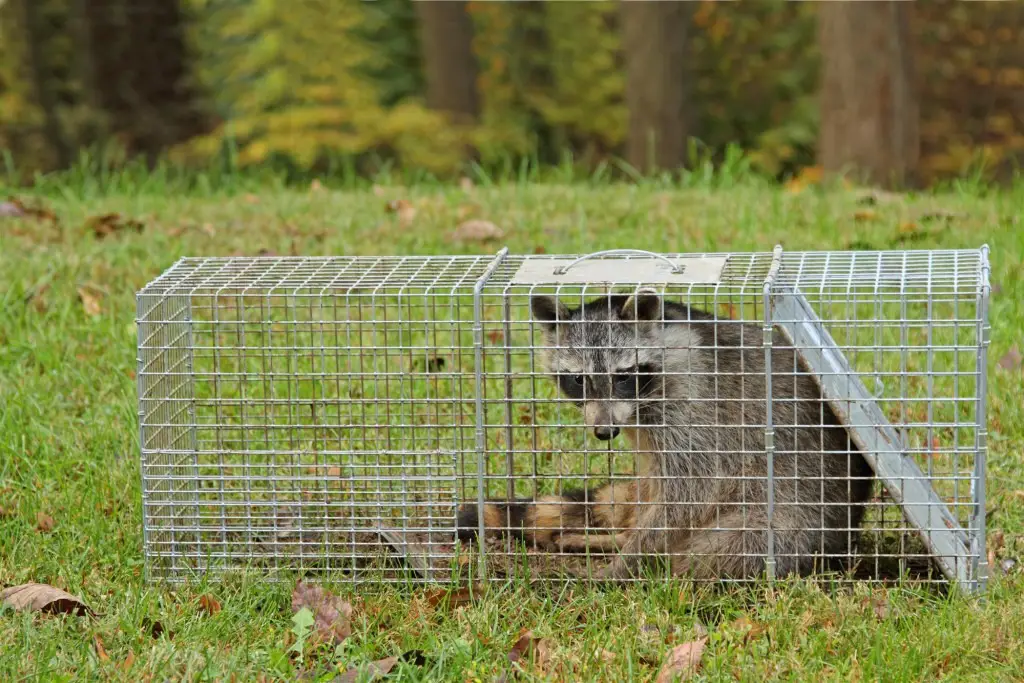
We are only highlighting humane ways to eliminate raccoons off the property; we’d recommend using a humane trap and adding a lure to bring them in.
Once trapped, we recommend you call your local wildlife control helpline. Instead of relocating them to an area where they shouldn’t be, you should let the professional do the job and relocate the raccoons somewhere they will be safe and away from the humans.
7. Use natural remedies

Raccoons are very sensitive to certain smells and factors, including aromatics with a strong and pungent smell. In that case, we recommend using natural remedies.
Some of the most common deterrents include vinegar, ammonia, garlic, cayenne pepper powder, and dirty cat litter. The strong odor from these elements acts as a deterrent and keeps the raccoons out of the property quickly.
Also read: How to Get Rid of Snakes
8. Plant cucumber trees in the yard
It might sound dumb, but surprisingly, it works. The strong smell from the cucumber plant is a great deterrent, keeping the raccoons out of the property. If that doesn’t work, planting other aromatics like onion and garlic plants also works as excellent deterrents.
9. Use predator urine

Raccoons aren’t great fans of their predators, including coyotes and bobcats. So, if you find raccoons infiltrating the areas around your house, the best way to keep them out is to spray the perimeter of your home with predator urine.
You don’t have to spray a lot. Even a little is quite effective in keeping the raccoons out of the house. They are available for purchase online, so you can go ahead and buy and spray them around the house.
10. Cover water sources
Besides food, raccoons also infiltrate people’s houses in search of water. So, if you have open water sources around your house, that’s another reason why the infestation is likely increasing without any control.
We’d recommend you look for open ponds, pools, or even a bird water fountain if you have one. Cover these water sources, and you should find the raccoons looking for other houses to infiltrate and infest.
11. Put fencing up
Raccoons are natural climbers, which means that your standard wooden fence will not do any good in keeping the raccoons out of the house. What you need to do instead is look for electric fencing and put them up around the perimeter of your home.
Once the raccoons try to climb up the electric fence, it shocks them, deterring them from trying to climb around. The electric fencing set around the entire fence ensures all the entry points are closed for the animal.
12. Contact a professional
If none of the above-mentioned tips are working and the infestation seems to be getting worse each day, your last resort is to contact a professional. They are here to help you figure out what’s wrong and then implement relevant fixes to eliminate the raccoons and ensure that they don’t return in the future.
When it comes to getting rid of raccoons, these are some of the factors that you have to pay close attention to. We have highlighted humane techniques to deter them and keep them out of the house, which we recommend you follow. There’s no point killing the raccoon if it isn’t attacking you or causing you physical harm.
Frequently Asked Questions (FAQs)
What do raccoons hate the most?
Raccoons aren’t big fans of aromatics like pepper and garlic. So, sprinkling those around the house’s perimeter is a great way to eliminate the raccoons from around the house quickly.
What are raccoons afraid of?
Raccoons aren’t fond of predator smell, so spraying predator urine around the entry points is a great way to keep them out of the house.
Are raccoons afraid of the light?
Raccoons are nocturnal, meaning that they are generally more active at night. Therefore, they don’t prefer or enjoy exposure to bright light.
Do raccoons hate garlic?
Raccoons are not huge fans of garlic, and they especially hate the smell of it. So, if you want to keep them out of your home, we recommend sprinkling raw garlic around the yard.
Do raccoons eat cats?
If raccoons don’t find suitable food sources, they might prey on small animals, including small cats and kittens.
What food poisons raccoons?
Chocolate, garlic, raisins, and macadamia nuts are the most common food sources that are toxic to raccoons.
Do raccoons fear humans?
Raccoons are generally not very fond of humans. If you encounter one and they are scared or feel threatened, they might attack the human in their line of sight.
